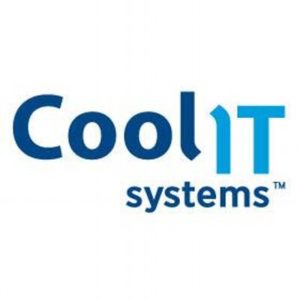 In this video, Geoff Lyon from CoolIT Systems describes the company’s innovative liquid-cooling solutions for HPC.
In this video, Geoff Lyon from CoolIT Systems describes the company’s innovative liquid-cooling solutions for HPC.
“Liquid cooling in the data center continues to grow in adoption and delivers more compelling ROIs. Our collaboration with OEM partners such as Dell EMC, HPE, Intel and STULZ provides further evidence that the future of the data center is destined for liquid cooling,” said Geoff Lyon, CEO and CTO at CoolIT Systems.”
As the most popular integration partner for OEM server manufacturers, CoolIT showcased liquid-enabled servers from Intel, Dell EMC, HPE, and Huawei. Combined with the broadest range of heat exchangers and supporting liquid infrastructure, CoolIT and their OEM partners are delivering the most complete and robust liquid cooling solutions to the HPC market.
CoolIT OEM solutions on display at SC17 included:
- Intel Buchanan Pass – CoolIT is pleased to announce the liquid-enabled Buchanan Pass server with coldplates managing heat from the processor, voltage regulator, and memory.
- Dell EMC PowerEdge C6420 – this liquid-enabled server will be on display at the Dell EMC booth (#913) within a fully populated rack, including stainless steel Manifold Modules and the best-in-class CHx80 Heat Exchange Module. With factory-installed liquid cooling, this server is purpose-built for high performance and hyperscale workloads.
- HPE Apollo 2000 Gen9 System – optimized with Rack DCLC to significantly enhance overall data center performance and efficiency
- HPE Apollo Trade and Match Server Solution – optimized with Closed-Loop DCLC to increase density, decrease TCO and take advantage of enhanced performance to capitalize on High Frequency Trading trends.
- STULZ Micro Data Center – combining CoolIT’s Rack DCLC with STULZ’ world-renowned mission critical air cooling products to create a single enclosed solution for managing high-density compute requirements.
Debuting at SC17 were two industry-first Heat Exchange Modules:
- Rack DCLC AHx10, CoolIT’s new Liquid-to-Air CDU that delivers the benefits of rack level liquid cooling without the requirement for facility water. The standard 5U system manages 7kW at 25°C ambient air temperature and is expandable to 6U or 7U configurations (via the available expansion kit) to scale capacity up to 10kW of heat load.
- Rack DCLC AHx2, CoolIT’s new Liquid-to-Air heat exchanger tool for OEMs and System Integrators for DCLC enabled servers to be thermally tested during the factory burn-in process, without liquid cooling infrastructure.
CoolIT will also showcase its Liquid-to-Liquid heat exchangers, including the stand-alone Rack DCLC CHx650, and the 4u Rack DCLC CHx80 that provides 80-100kW cooling capacity with N+1 reliability to manage the most challenging, high density HPC racks.
 For the first time, CoolIT showcased its advanced Rack DCLC Command2 Control System for Heat Exchange Modules. Attendees can experience the plug-and-play functionality of Command2, including built-in autonomous controls and sophisticated safety features.
For the first time, CoolIT showcased its advanced Rack DCLC Command2 Control System for Heat Exchange Modules. Attendees can experience the plug-and-play functionality of Command2, including built-in autonomous controls and sophisticated safety features.
The latest CPU and GPU coldplate assemblies to support CoolIT’s passive Rack DCLC platform will be displayed, including the RX1 for Intel Xeon Scalable Processor Family (Skylake), the GP1 for NVIDIA Tesla P100 and GP2 for NVIDIA Tesla V100. Additionally, CoolIT’s full coverage MX1, MX2 and MX3 memory cooling coldplates will be featured.
CoolIT also hightlighted customer installations including:
- Canadian Hydrogen Intensity Mapping Experiment (CHIME), the world’s largest low-frequency radio telescope. Deployed inside a containerized environment, CoolIT’s liquid cooled system consists of 256 rack-mounted General Technics GT0180 custom 4u servers housed in 26 racks managed by Rack DCLC CHx40 Heat Exchange Modules. Featuring liquid cooled Intel Xeon Processor E5-2620 v3 and dual AMD FirePro S9300x2, CoolIT significantly lowers operating temperatures and improves performance and power-efficiencies.
- Poznan Supercomputing and Networking Center (PSNC). The PSNC “Eagle” cluster uses 1,232 liquid cooled Huawei CH121 servers to increase density and reduce energy consumption. PSNC was able to deploy this new cluster within their existing data center without having to invest in additional air cooling infrastructure. The heated liquid is also being reused for local heating needs.
For more information on how to increase data center density, improve performance and reduce overall costs head to: www.coolitsystems.com




